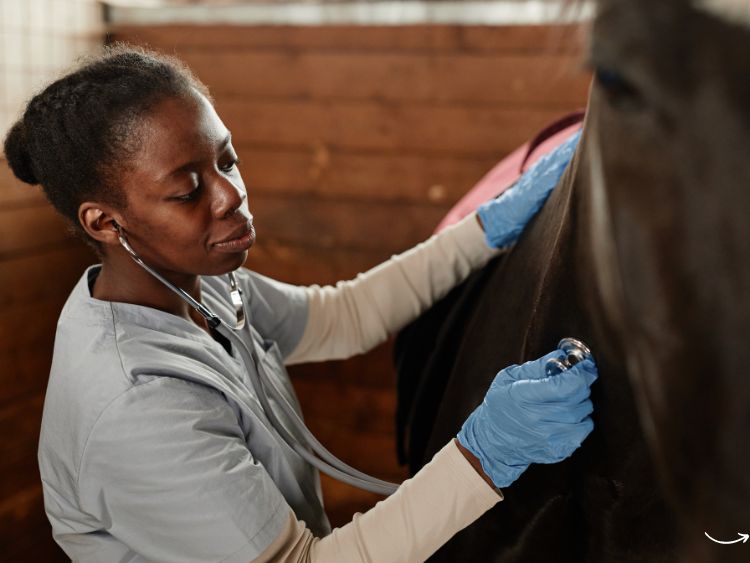Owning a horse is a rewarding experience, but it also comes with great responsibility. One of the key aspects of maintaining a healthy and happy horse is adhering to a proper vaccination schedule. Vaccines play a crucial role in preventing various infectious diseases that can affect horses, some of which can be fatal. In this guide, we’ll delve into the importance of vaccinations, outline a recommended vaccination schedule, and answer some frequently asked questions. So, saddle up and let’s dive into the nitty-gritty of horse vaccination!
Why Vaccinate Your Horse?
Vaccinating your horse isn’t just about following a routine—it’s about ensuring your horse’s well-being and longevity. Here are some compelling reasons to keep up with your horse’s vaccination schedule:
- Disease Prevention: Vaccines protect horses from a range of infectious diseases, such as tetanus, rabies, and equine influenza.
- Health Maintenance: Regular vaccinations help maintain overall health and reduce the likelihood of outbreaks.
- Legal Requirements: In some regions, certain vaccinations are legally required, especially for horses that travel or compete.
- Cost-Effectiveness: Preventing diseases through vaccination is far more cost-effective than treating a sick horse.
Core Vaccinations
Core vaccinations are those that are universally recommended for all horses, regardless of their location or lifestyle. These vaccines protect against diseases that are either widespread or pose significant health risks.
Tetanus
Tetanus, caused by the bacterium Clostridium tetani, is a potentially fatal disease. Horses are particularly susceptible due to their environment and natural behavior. The tetanus vaccine is crucial for protecting against this deadly disease.
Eastern and Western Equine Encephalomyelitis (EEE/WEE)
EEE and WEE are viral diseases transmitted by mosquitoes. These diseases affect the central nervous system and can be fatal. The vaccine for EEE/WEE is typically administered annually.
West Nile Virus
Another mosquito-borne disease, West Nile Virus, can cause severe neurological symptoms in horses. Annual vaccination is recommended to protect against this disease.
Rabies
Rabies is a fatal disease that affects all mammals, including horses. Vaccination against rabies is not only crucial for the horse’s health but also for public safety. An annual rabies vaccine is recommended.
Risk-Based Vaccinations
In addition to core vaccines, there are risk-based vaccines that may be recommended based on the horse’s location, lifestyle, and exposure risk. Here are some common risk-based vaccines:
Equine Herpesvirus (EHV)
EHV can cause respiratory disease, neurological disease, and abortion in pregnant mares. The vaccine is recommended for horses that are frequently in contact with others, such as at shows or boarding facilities.
Equine Influenza
Equine influenza is a highly contagious respiratory disease. Horses that travel, compete, or are exposed to new horses should receive this vaccine biannually.
Strangles
Strangles, caused by the bacterium Streptococcus equi, is a highly contagious disease that affects the lymph nodes. Vaccination is recommended for horses in high-risk environments.
Potomac Horse Fever
This disease is caused by a bacterium and is more common in certain geographic areas. The vaccine is recommended for horses in regions where the disease is prevalent.
Recommended Vaccination Schedule
A well-planned vaccination schedule is essential for protecting your horse’s health. Below is a general vaccination schedule for horses. Always consult your veterinarian to tailor the schedule to your horse’s specific needs.
Foals (Under 1 Year)
- Tetanus: Initial series at 4-6 months, booster at 12 months.
- EEE/WEE: Initial series at 4-6 months, booster at 12 months.
- West Nile Virus: Initial series at 4-6 months, booster at 12 months.
- Rabies: Initial dose at 6 months, booster at 12 months.
- EHV: Initial series at 4-6 months, booster at 12 months.
- Equine Influenza: Initial series at 6-7 months, booster at 12 months.
Yearlings and Adult Horses
- Tetanus: Annual booster.
- EEE/WEE: Annual booster.
- West Nile Virus: Annual booster.
- Rabies: Annual booster.
- EHV: Biannual booster for high-risk horses.
- Equine Influenza: Biannual booster for high-risk horses.
Broodmares
- Tetanus: Annual booster.
- EEE/WEE: Annual booster.
- West Nile Virus: Annual booster.
- Rabies: Annual booster.
- EHV: Vaccinate at 5, 7, and 9 months of gestation.
- Equine Influenza: Biannual booster, including one 4-6 weeks before foaling.
FAQs
What if my horse misses a vaccination?
If your horse misses a vaccination, consult your veterinarian. They can recommend a catch-up schedule to ensure your horse is protected.
Can I vaccinate my horse myself?
While some vaccines are available for purchase, it’s best to have a veterinarian administer them. They can ensure proper dosage, handle any adverse reactions, and maintain accurate records.
Are there side effects to horse vaccinations?
Most horses experience minimal side effects, such as mild swelling at the injection site or slight lethargy. Severe reactions are rare but should be addressed immediately by a veterinarian.
How can I keep track of my horse’s vaccination schedule?
Keeping a vaccination record is crucial. Many horse owners use a calendar or a mobile app designed for horse health management to track vaccinations and other health care needs.
Are there any new vaccines on the horizon?
Veterinary medicine is constantly evolving. Stay in touch with your veterinarian to learn about new vaccines or updated recommendations that could benefit your horse.
Summary
A proper horse vaccination schedule is essential for safeguarding your horse’s health and well-being. By adhering to a routine vaccination plan, you can prevent a range of infectious diseases, ensure compliance with legal requirements, and ultimately save on potential medical costs. Remember to consult your veterinarian for personalized advice and to stay informed about any new developments in equine health care.
Authoritative Links
- American Association of Equine Practitioners: https://aaep.org
- Centers for Disease Control and Prevention (Rabies): https://cdc.gov/rabies
- University of Minnesota Equine Center: https://equinecenter.umn.edu
- TheHorse.com (Vaccination Guidelines): https://thehorse.com/vaccination-guidelines
- Merck Veterinary Manual (Equine Vaccination): https://merckvetmanual.com/equine-vaccination
By following this guide, you’ll be well-equipped to maintain your horse’s health through a diligent vaccination schedule. Happy riding and here’s to many healthy years with your equine companion!







